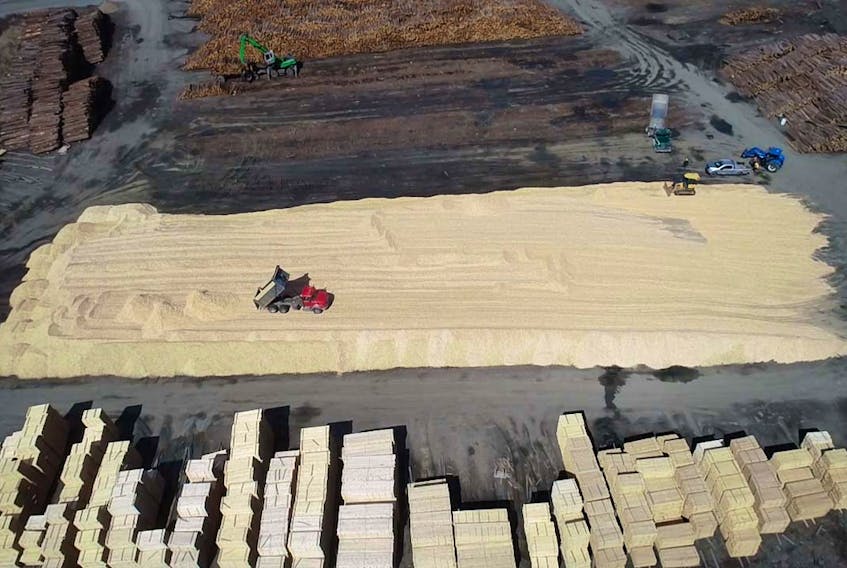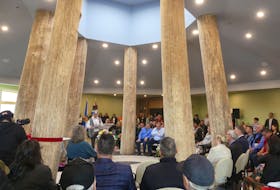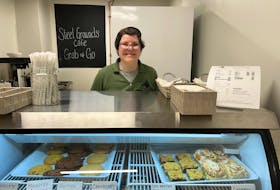Those who supply this province’s second largest sawmill are warning that unless a market is found quickly for its woodchips, Harry Freeman and Son Ltd. will close.
The second-generation Greenfield, Queens County, mill gave notice two weeks ago that it would stop taking wood “indefinitely.”
While its owners aren’t speaking publicly, its suppliers are warning the mill is going to shut unless a Band-Aid solution is found for its quickly accumulating pile of woodchips.
Freeman’s has about a month and a half worth of lumber yet in its yard and the chips are piling up. The mill, which employs about 160 people, used to sell its wood chips to Northern Pulp in Pictou County.
But the kraft pulp mill was forced to close when Premier Stephen McNeil refused to extend the Boat Harbour Act last December.
“This shutdown is not to do with COVID-19. That is what (government is) using as a scapegoat,” said Colin Hughes, owner of Colin Hughes Forestry.
“If (government) wouldn’t have shut Northern Pulp down, then this mill wouldn’t be facing a closure. Or if they were willing to work with the secondary solution that’s right in front of them, it would allow us all to somewhat function.”
The forestry industry has argued that Emera’s Brooklyn Pulp and Power could operate as a temporary solution to the market crisis created when Northern Pulp stopped buying the softwood chips produced as a byproduct of sawmilling.
Between roundwood and chips from mills, Northern Pulp consumed about 1.1 million tonnes of softwood fibre annually.
“They would need to make some changes, but physically that is a site that could burn these chips,” Stephen Cole, a forestry broker for HC Haynes Ltd., said of Brooklyn Pulp and Power.
The biomass generating plant is more expensive to run than other power plants owned by Emera’s subsidiary, Nova Scotia Power.
So fa,r the provincial government has declined to legislate it to be a “must-run” facility as it had previously done with the biomass plant in Point Tupper. That designation was later lifted at Point Tupper over concerns that a large amount of cutting was being done just to supply the plant with material to burn.
The Energy Department did not respond to a request for comment on the matter before deadline Tuesday.
At Elmsdale Lumber, Robin Wilber is thankful he’s been able to find a market for his woodchips, even if he’s selling them for half what Northern Pulp paid. His are going to a pellet mill.
And they’ve been incorporating social distancing at the mill, which employs about 50 people on site – not letting truckers out of their vehicles, ensuring lunches are eaten alone and replacing most cheques with e-transfers.
“We are operating,” said Wilber.
“Our worry is that a North American recession caused by COVID-19 will lead to a significant drop in lumber prices. Where we’re already getting significantly less for our value-added byproduct, if we also got less for our lumber, then we would have a problem.”









